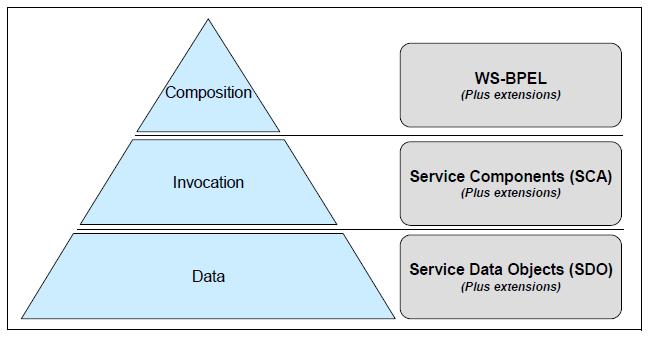Using WebSphere Process Server in your SOA Infrastructure
WebSphere Process Server (WPS) is the runtime engine for artifacts produced in a business-driven development process. It allows orchestration of business assets into highly optimized and effective processes to meet business goals. It is a single, integrated, runtime foundation for deploying service-oriented architecture or SOA based business processes. Built on open standards, it deploys and executes processes that orchestrate services (people, information, systems, and trading partners) within your SOA or non-SOA infrastructure. It helps increase efficiency and productivity by automating complicated processes that span people, partners, and systems. It helps cut costs by enabling flexible business processes with reusable assets, thus reducing the need to hard-code changes across multiple applications. It has the ability to track the state of process instances, handle human intervention, and deal with exceptions.
WPS is mounted on top of WebSphere Application Server (WAS) with its robust J2EE runtime and offers a new level of abstraction so the task of integrating applications and services becomes much easier.
At the data level, WPS offers Service Data Objects (SDOs) as an abstraction level. SDO and a number of extensions are used to implement business objects. Extensions to SDO that are implemented in WPS include support for metadata, context information, and change history. At the invocation level, WPS offers Service Component Architecture (SCA). SCA describes all integration artifacts as service components with well-defined interfaces. SCA also introduces the concept of a module, which groups together service components and provides further specification and encapsulation of services. WPS utilizes WebSphere Integration Developer (WID) as its integrated development environment for building applications based on service-oriented architecture.
It provides an assembly editor where the developer groups service components into modules and specifies which service interfaces are exposed by the module to outside consumers. Services that are available include imported components such as Java Beans or Web services and service components that WPS provides. Modules are then connected to form complete integration solutions.
SCA allows the developer to encapsulate integration logic within modules. This means that a change to service components within a module does not impact any of the other modules in the overall solution as long as the interface of the changed module stays the same. All integration artifacts in WPS (processes, business rules, human tasks, and so on) are represented as SCA service components. This creates an environment with great flexibility. For example, to replace a human task for an approval with a business rule for automatic approval simply by replacing the service components in the assembly diagram without changing either a business process or the caller of the business process. With SCA, you can invoke service components using synchronous and asynchronous programming styles. You can assemble modules into overall solutions where asynchronous channels between service components and modules can increase the overall throughput and flexibility of the system. At the composition level, WPS offers business process execution language for Web services (WS-BPEL), also referred to as BPEL4WS.
WPS simplifies integration and accelerates the adoption of SOA by rendering current IT assets as service components for reuse and efficiency; it uses WID as its editing utility. WID is an Eclipse-based tool for building SOA-based BPM and integration solutions across WPS, WebSphere ESB, and WebSphere Adapters. It accelerates solution development, constructs process and integration solutions using an intuitive drag-and-drop technology to visually define the sequence and flow of business process solutions. WID provides a GUI that displays visually the business process solution artifact, with easy access to business rules and processing logic. It integrates testing, debugging and deployment for solution development along with support for human interaction user interfaces that can be easily customized. Eclipse-based WID is easy to integrate with existing source control resources.
WPS allows the ability to manage business process choreography to bring together individual services to accomplish a larger piece of work. WPS utilizes the WAS Server framework platform on which Java™ technology-based applications run. WAS provides services such as security, database connectivity, threading, workload management, clustering configuration and so forth that can be used by applications.
A SOA-based solution utilizing WPS can be designed, developed and implemented to replace the current functionality for existing business process applications. If you would like to explore all the options available to your organization using SOA based solutions utilizing WebSphere Process Server, contact the Professional Security Services at Pathmaker Group for more information. We provide security and identity management solutions. Our services include penetration testing, SOA security and identity consulting. Learn more about us on our website or call 817-704-3644.


Leave a Reply
Want to join the discussion?Feel free to contribute!